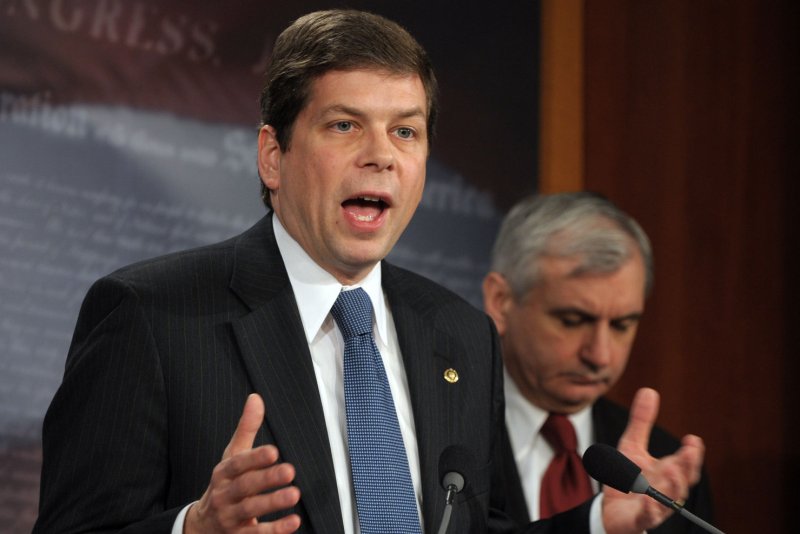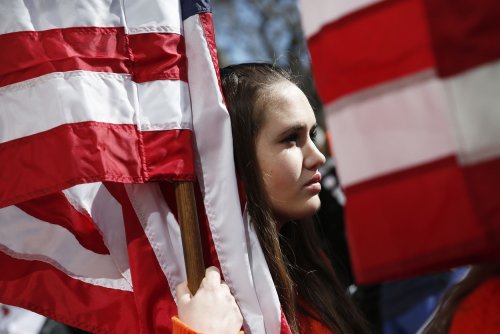Sen. Mark Begich, D-Alaska UPI/Roger L. Wollenberg |
License Photo
JUNEAU, Alaska, Aug. 20 (UPI) -- Former Alaska Attorney General Dan Sullivan has won the Republican nomination for the U.S. Senate in a race that is already the most expensive in state history.
Sullivan challenges U.S. Sen. Mark Begich, a one-term Democrat. Begich is perceived as easy pickings in a state that has become heavily Republican as the party tries to seize control of the Senate.
Both Sullivan and Begich, who faced only token opposition, spent heavily in Tuesday's primary, mostly attacking each other. Sullivan paid little attention to his Republican rivals, Joe Miller -- a lawyer and Tea Party favorite who defeated Sen. Lisa Murkowski in the 2010 primary, only to lose to her in the general election -- and former Lt. Gov. Mead Treadwell.
Unofficial results from the state Division of Elections gave Sullivan 40 percent of the vote to 32 percent for Miller and 25 percent for Treadwell, while a fourth candidate received only 3 percent. On the Democratic side, Begich got almost 84 percent of the vote against six candidates.
Begich, the son of U.S. Rep. Nick Begich, who disappeared during a 1972 plane trip in Alaska, was the first Anchorage mayor to be born in the state. In 2008, he won a narrow victory over Sen. Ted Stevens, who had just been convicted of ethics and corruption charges that were later dismissed.
Sullivan, an Ohio native, moved to Alaska after serving in the U.S. Marines. He served as attorney general under Gov. Sarah Palin and commissioner of the department of natural resources under her successor.
The two candidates have already raised more than $12 million between them, much off it from outside Alaska. That's more than $20 for every registered voter in the state.















